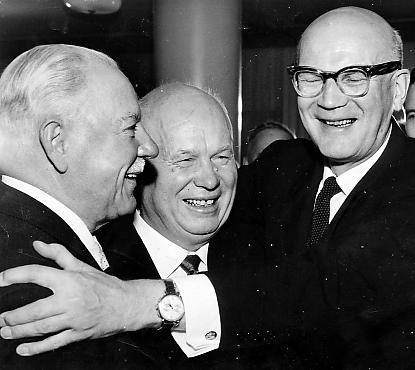How the Finns have built a country without opposing Russia
There is a wonderful country, Finland. By stating a number of facts, one can make sure that this is a wonderful country. The average monthly salary in this country amount to 3 thousand 600 euros. In legal states, this country ranks 4th, and the 1st in terms of freedom of press, it ranks one of the leading countries in terms of absence of corruption, and the education system is considered to be the most efficient in the world. And so on, the list could go on and so forth. While the Finns, like us, can say about themselves that they are a long-suffered nation.
For nearly a century, Finland, as it is known, was a part of the Russian Empire (before tha, in the composition of Sweden for about 5 centuries). In 1917, the country received a “de jure” independence, but until the end of the World War II, the relations with the Soviet Union were very tense, sometimes turning to armed conflicts. The then Finnish government authorities were opposing the powerful neighbor, and it did not result in anything good. However, later, the pragmatics came to power, Juho Kusti Paasikivi, who ruled the country from 1946 until 1956 and Urho Kekkonen (1956-1981). These two people, without exaggeration, created the modern Finland.
After World War II, Finland, unlike the Baltic republics, managed to preserve its sovereignty, for which, however, the country paid a high cost. First, it finally gave up Karelia Peninsula in favor of the Soviet Union, also Pechanga region, paid reparations to the Soviet citizens in the Finnish concentration camps, declared about its neutral status (so far, to the point, it is not a NATO member), as well as taking the USSR special strategic interests into account. In the post-war Finland, the films and books that could be viewed as “anti-Soviet” were banned. When the Soviet citizens fled to Finland, this country was returning the illegal refugees to their government authorities. Finnish politicians tried to have useful acquaintances in the Soviet Embassy, with the help of which they ensured the career of these politicians. Western historians even claim that for some time, senior officials of Finland were to get “OK” from Moscow prior to being appointed.
Read also
Finland managed to use this limited period of national sovereignty to achieve impressive progress in economy. For several decades, the economy of this country is closely tied to the USSR economy, which enabled the Finnish quality products be sold in the Soviet huge market, the Finnish business communities were getting extremely profitable Soviet orders. In the 80’s, parallel to the collapse of the Soviet Union, these ties, of course, became weak and, naturally, the sovereignty became complete. But prior to it, Finland as much as possible, as much as the Soviet regime enable, the political and economic cooperation, first of all, with the West was developing, primarily with the Nordic countries. Such a wise, balanced and far-sighted policy was ruled by Presidents Paasikivi and Kekkonen.
Why am I telling you all this? If you have a neighbor who has imperialistic ambitions and displays an inadequate conduct from time to time, and you have no chance to oppose it, then develop your country to the extent of the opportunities granted to you and do not make sharp movements. Imperial paranoia ends sooner or later. You just need have such a a calm and patient temperament like the Finns to realize it.
Aram ABRAHAMYAN
In the photo: from the right – Kekkonen with Khrushchev and Voroshilov






















































